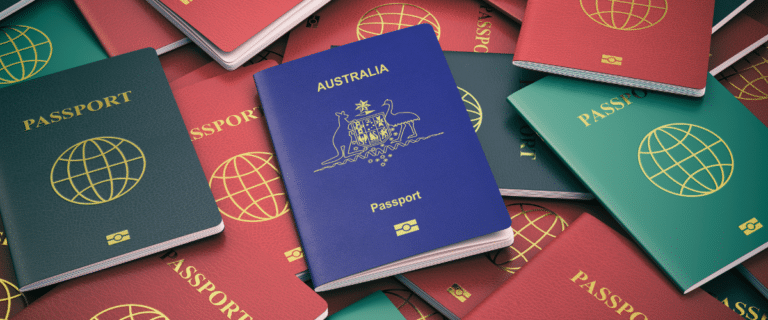On This Page...
ToggleWhy Your Australian Student Visa Got Refused for Chinese Nationals.
Hi, Nilesh Nandan here – if you’re reading this, you’re likely frustrated (or maybe worried) about a student visa refusal. Whether you’re planning to study here from China or you’ve already applied and hit a roadblock, I’m here to help shed some light on why refusals happen and what you can do if you find yourself facing one. Let’s dive into the top questions I hear all the time from Chinese students about student visa refusals.
1. What are the main reasons for Australian student visa refusals for Chinese nationals?
Let’s start with the big picture. Visa refusals happen for a range of reasons, but some of the most common for Chinese nationals include issues with the Genuine Student (GS) requirement, financial documentation, English language skills, and past visa history. Any red flag in one of these areas can lead the Department of Home Affairs to conclude that you might not meet all the criteria needed to get your visa.
2. How does the Genuine Student (GS) requirement affect visa decisions?
The GS requirement is crucial – and sometimes tricky. It means you must show that you genuinely intend to stay in Australia temporarily, for study, not for migration. And you need to show an understanding that studying in Australia is the primary reason for your student visa. Immigration officers look at your personal circumstances in China, your career prospects, the relevance of your study plan, and any family ties in Australia. If your motivation for studying seems weak or if your circumstances raise questions, you might be seen as a “migration risk,” leading to refusal.
3. Can a low English proficiency score lead to a visa refusal?
Absolutely, yes. Australia’s study environment is English-speaking, so the Department expects you to meet a certain English standard, which varies by the type of course you’re enrolling in. Low scores on tests like IELTS, TOEFL, or PTE can indicate that you might struggle academically, which can be grounds for refusal. Make sure your scores meet the requirements set by your university or vocational school, as well as the Department.
4. Does a previous visa rejection affect my new student visa application?
A past visa refusal isn’t an automatic disqualifier, but it does put your current application under greater scrutiny. You’ll need to address the reasons for that earlier refusal and demonstrate any changes in your circumstances. For example, if your prior visa was refused due to financial concerns, showing solid proof of funds now can improve your new application’s chances.
5. Is insufficient financial documentation a common cause for refusal?
Yes, this is a big one! Australian immigration law requires you to show you have enough money to cover your tuition, living expenses, and travel costs. If your financial documentation seems inadequate, outdated or doesn’t meet Australian standards, the Department may refuse your visa due to concerns about your ability to support yourself.
6. What specific financial proof is required for a student visa?
Generally, you’ll need bank statements showing sufficient funds or proof of income from a sponsor, like a family member, or evidence of a scholarship. Australia requires funds to cover at least 12 months of study and living expenses, plus any additional dependents. Make sure all documents are recent, clear, and match what’s required under Australian law.
7. How does age impact my student visa application?
Age is indirectly considered in the GS assessment. If you’re older and applying for an undergraduate program, for example, officers might question your motivation. Age gaps in your education history can be seen as red flags if not explained. It’s crucial to clarify why you’re pursuing this specific course at this stage in life.
8. Can past academic performance lead to a visa rejection?
It can if your academic history doesn’t align with your study plan. If you struggled in school or have an unrelated study background, you may need to explain why you’re now choosing a different field in Australia. Immigration officers might view a drastic switch without a clear reason as a sign you’re not a genuine student.
9. Does the course choice in Australia affect visa success?
Yes. The Department wants to see a clear, logical progression in your academic or career path. If you’re switching from engineering to hospitality without a good explanation, for instance, it might raise questions. Explain how your chosen course aligns with your goals, whether it’s furthering your career in China or building on previous education.
10. What can I do if my visa application is refused?
A visa refusal isn’t the end of the road. Firstly, get a clear understanding of why the application was refused – the refusal letter will outline this. Then, consider whether reapplying or appealing is the better option. If it’s an issue you can address, like updating financial documentation or improving your personal statement, a new application might work.
11. Are interviews mandatory for all applicants, and how do they impact the decision?
No, interviews aren’t required for all applicants, but if the Department has concerns, they might call you in for one. In the interview, you’ll be asked questions to confirm your study intentions, financial situation, and overall GS. A solid, consistent interview can significantly help your case, so prepare accordingly if asked.
12. What are my options if I want to appeal a student visa refusal?
If you believe the refusal was unfair, you can lodge an appeal with the Administrative Review Tribunal (ART). The ART will review the Department’s decision and assess your application again. However, this process can take time and money, so weigh your chances carefully. In some cases, a stronger, re-submitted application may be a quicker and more effective route.
13. Can reapplying after refusal be successful, and what should I change in my application?
Yes, reapplying can be successful if you address the reasons for the initial refusal. Review your GS statement, update financial documents, improve your English score, or clarify your study path. Think of your new application as an opportunity to show you’re genuinely committed to your study plan in Australia.
Final Thoughts and Call to Action
A student visa refusal can feel like a setback, but it doesn’t have to mean the end of your Australian study dream. If you’ve faced a refusal or just want to make sure your application is rock-solid, reach out for a consultation. My team and I can help you understand where things might have gone wrong, improve your GS, and make sure your application ticks every box. Don’t leave it to chance – get in touch, and let’s get you one step closer to studying in Australia.



